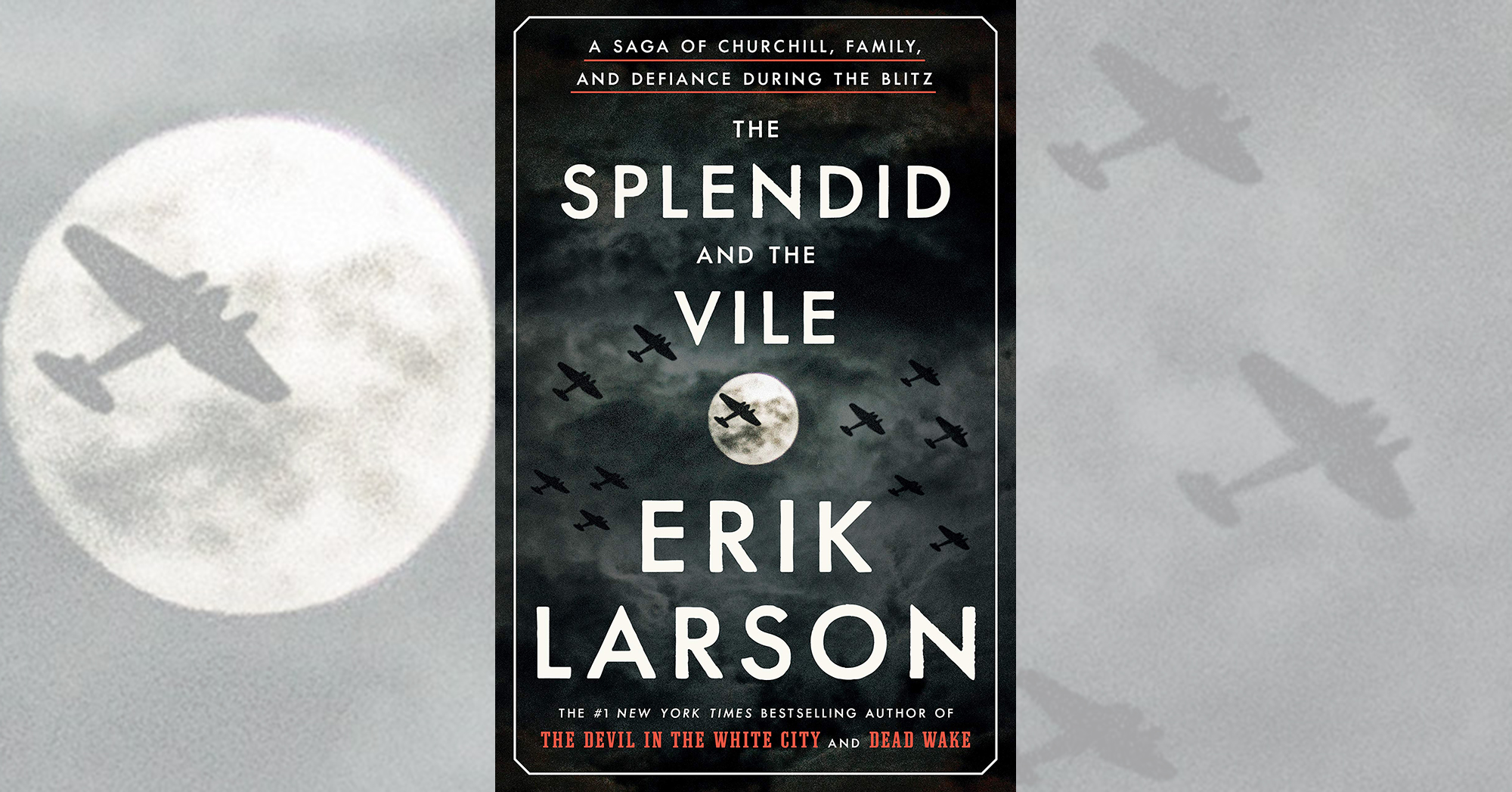The Splendid and the Vile: A Saga of Churchill, Family and Defiance During the Blitz, by Erik Larson, Crown, New York, 2020, $32
Erik Larson, author of the best-selling historical novels Dead Wake and The Devil in the White City, relates the heroic saga of Winston Churchill’s Britain during the Nazi Blitz. Stretching from May 1940 to May 1941 in German accounting, the Blitz coincided with Churchill’s first year as wartime prime minister, when Britain stood alone in resisting Adolf Hitler. Churchill remains the subject of endless study, Larson notes, due to a clarity of heroic leadership lacking in politicians from most any other place or time. His circle of family, friends, civil servants and military men are also of interest in this fast-paced narrative of elegant prose.
A key character is John “Jock” Colville, Churchill’s private secretary. His diaries are a vital source for writers and historians. Larson’s contribution differs by mining the Colville diaries and other contemporary sources for both the mundane and the obscure to build a deeper portrait of daily life amid those turbulent times. The book title derives from Colville’s description of the beauty of searchlights and explosions lighting up the night sky (splendid) contrasted against the resulting death and destruction on the ground below (vile).
Throughout the narrative the author deftly weaves known interactions the prime minister had with other wartime souls. In one poignant passage we meet the young boy who, when Churchill asked what he wanted to be when he grew up, replied, “Alive.”
Larson also presents the confident Churchill of familiar lore, the man who believed he was “walking with destiny” when objective appraisals labeled his task hopeless. Yet we also see the beleaguered leader, pensive as he admits all he has to offer the “poor people” of Britain is death and devastation. As the bombs kept falling and the death toll mounted, however, the British pilots above and the people below rallied to their indomitable leader. Despite suffering some 50,000 dead, they resisted until a frustrated Hitler turned eastward and unleashed his army on the Soviet Union. Churchill was perhaps never more eloquent as when describing Hitler as this “monstrous abortion of hatred and defeat.”
—William John Shepherd
This post contains affiliate links. If you buy something through our site, we might earn a commission.





